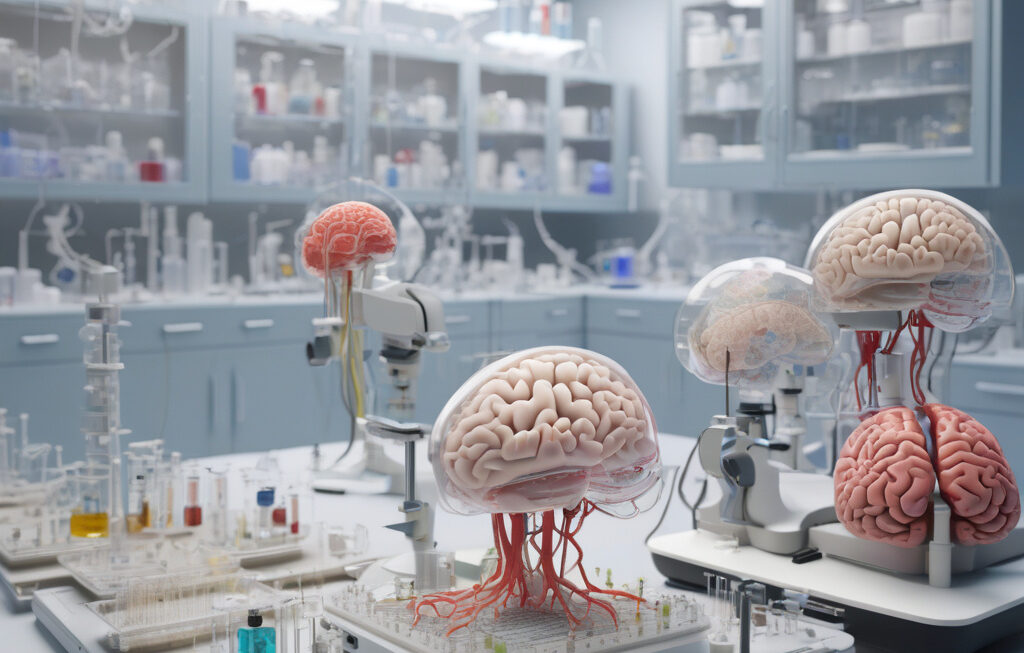Impossible to Fake? New Hydrogel Could Give Every Object a Unique, Unclonable Identity
In a world where fake medical implants, counterfeit microchips, and cloned devices can threaten lives, the need for foolproof authentication methods has never been more critical. Enter hydrogels, a groundbreaking innovation that could revolutionize the concept of product verification. These water-based polymer materials are not only biocompatible and flexible but can also be engineered to possess unique and unclonable characteristics, making them a game-changer in the fight against counterfeiting.
Hydrogels have long been utilized in various applications, from biomedical devices to contact lenses, due to their exceptional properties. However, recent advancements in material science have unlocked their potential for anti-counterfeiting measures. By embedding specific patterns, nanoparticles, or even DNA molecules into the hydrogel matrix during its formation, manufacturers can create a distinctive “fingerprint” for each product.
The beauty of this technology lies in its complexity. The intricate patterns and compositions within the hydrogel are virtually impossible to replicate accurately, making it extremely challenging for counterfeiters to produce identical copies. Moreover, the process of embedding these unique identifiers can be customized and scaled according to the needs of different industries, offering a versatile solution for product authentication.
One of the most promising applications of hydrogels is in the field of medical implants. With the global market for medical devices growing rapidly, ensuring the authenticity and quality of these products is paramount. By incorporating specialized hydrogels into implants, manufacturers can provide patients and healthcare professionals with a reliable means of verification, reducing the risks associated with counterfeit or substandard devices.
The electronic industry is another sector that stands to benefit significantly from this innovation. Counterfeit microchips pose a severe threat to the integrity of electronic devices, leading to malfunctions, data breaches, and safety hazards. By integrating hydrogels with unique identifiers into microchips during the manufacturing process, companies can safeguard their products against tampering or cloning, enhancing trust and security in the supply chain.
Moreover, the versatility of hydrogels extends beyond physical objects to digital assets. In an era where digital piracy and identity theft are rampant, establishing a secure and unclonable identity for online transactions and data storage is a pressing concern. Hydrogels could offer a novel solution by serving as a physical key or authentication token for accessing digital platforms, adding an extra layer of security to sensitive information.
While the potential of hydrogels in anti-counterfeiting technology is promising, several challenges must be addressed before widespread adoption. Issues such as scalability, cost-effectiveness, and regulatory approval need to be carefully considered to ensure the practicality and viability of this solution across different industries. Collaboration between researchers, manufacturers, and regulatory bodies will be crucial in overcoming these hurdles and realizing the full benefits of hydrogel-based authentication systems.
In conclusion, the development of hydrogels as unclonable identifiers marks a significant milestone in the ongoing battle against counterfeit products and fraudulent activities. By harnessing the unique properties of these versatile materials, industries can enhance accountability, traceability, and security throughout the supply chain. As technology continues to evolve, innovative solutions like hydrogels offer a glimpse into a future where authenticity is no longer a question mark but a certainty.
counterfeiting, authentication, hydrogel technology, product verification, anti-counterfeiting, #innovation, #security, #technology, #authenticity, #industry












